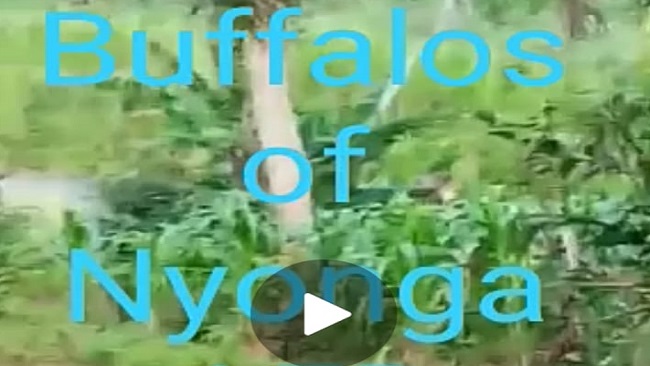Testing Ambazonia’s red lines a risky experiment for the Cameroon gov’t soldiers
The commander of the Buffalos of Nyonga providing security in the Bali District has warned that any provocative action along the Mamfe-Bamenda Main Road by Cameroon government troops would be testing the Federal Republic of Ambazonia’s red-lines and a risky experiment.
The Amba commander made the comment in a video released recently by the Buffalos of Nyonga detailing an attack against the Cameroon government army inside Bali saying the destruction of several Cameroon government military vehicles in Southern Cameroons is an indication that the Southern Cameroons Interim Government has red lines.
Ambazonia Restoration Forces beheaded government troops who reportedly killed an influential Muslim cleric.
Cameroon government military officials admitted for the first time in public that June was the bloodiest month of the year, with more than 40 soldiers killed.
Cameroon government army spokesman Captain Cyrille Serge Atonfack Guemo confirmed that three troops were killed and beheaded in Bamali and many army vehicles were destroyed. Captain Atonfack did not give details on how many troops were killed inside the military vehicles.
Ambazonia is the indigenous name of the former United Nations trust territory of the Southern Cameroons under United Kingdom Administration for close to half a century, excluding the period of British connection with the territory from 1843 to 1887. When Republique du Cameroun took control of the territory, it split it into two parts and designated them as “northwest and southwest provinces/regions of Republique du Cameroun.” This was rejected and continues to be rejected by the people of the former British Southern Cameroons. The people of the territory insist on the indigenous name of their Homeland which is Ambazonia. This is consistent with a 1978 recommendation of UNESCO that African countries should call their countries by the name they wish to be known. Here, the designations ‘Ambazonia’ and ‘the Southern Cameroons’ are used interchangeably.
By Fon Lawrence in Bamenda





